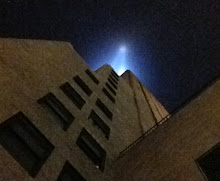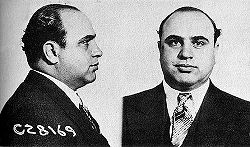In A Nutshell
Years after his release from Alcatraz, bedeviled by hallucinations fueled by untreated, late-stage syphilis, Al Capone wanders the overgrown grounds of his Miami Beach estate, ruminating with ghosts. Tomorrow will bring his forty-eighth birthday and one week later he will be dead. Between then and now sprawls an epic life, from the wild streets of turn-of-the-century Brooklyn, to a bloody Saint Valentine’s Day that shocked the world; here is the glamorous ascent and shocking decline of America's true king of crime.
Drop Us a Line
Are you somebody we should know? A big shot, maybe?
Well drop us a line at mistercapone@gmail.com and we'll see what we can do.
Some History
Jim VanBebber's 2004 feature, The Manson Family, was hailed as, "Crucial," by Peter Travers in Rolling Stone's four-star review. It inspired Roger Ebert to proclaim, "...it has an undeniable power and effect...it exists in a category of one film - this film." The film's successful theatrical release brought further critical acclaim and Manson then went on to thrive on home video, including as the centerpiece of Visions of Hell: The Films of Jim VanBebber, a mid-career retrospective DVD box set released in 2008.
Capone first met VanBebber at Wright State University when both men were enrolled in the Motion Pictures Production program headed up by Academy Award nominated documentary filmmakers Jim Klein and Julia Reichert. When, in junior year, the class was divided into small groups with the purpose of producing a short film, VanBebber, with partners Marcello Games and cinematographer Mike King, decided to shoot a full length feature. That film, 1988's Deadbeat at Dawn went on to earn true cult status, playing to crowds on 42nd Street and on many waning drive-in screens before landing on cable's The Movie Channel where it debuted on Joe Bob's Drive-In Theater, hosted by Joe Bob Briggs, who had singled out Deadbeat in his nationally syndicated four-star review.
With funds derived from the sale of Deadbeat, King, Games and VanBebber began their follow up production, The Manson Family, which brings us full circle
5/20/10
"Last Call" for Prohibition
The ever expanding public interest in Capone and his era finds it's latest expression in the release of "Last Call: The Rise and Fall of Prohibition" by historian Daniel Okrent, who is currently on tour promoting the book. Here's an excerpt from the Wall Street Journal review: "It's a safe conjecture that the snapshot impression most Americans have of the Prohibition era is a gauzy haze of speakeasies, Al Capone, boot- leggers, flappers, bathtub gin and Harlem's Cotton Club. For decades, the Hollywood and literary glorification of those who flouted the 18th Amendment—which went into effect on Jan. 17, 1920—has promoted the entirely accurate notion that the Prohibition story is at times outrageously picaresque. But the pop-culture view has also fostered the inaccurate belief that alcohol back then was a rare commodity, available only to the privileged, the daring and the outright criminal. In fact, as Daniel Okrent shows in "Last Call," his superb history of the Prohibition era, obtaining a drink with a lot more kick than a bottle of pop wasn't at all difficult for the thirsty public. The law's loopholes were numerous, and the judiciary, suddenly overwhelmed by Prohibition-related arrests, was extraordinarily lenient. Fortunes were made by taking advantage of exemptions for "medicinal" alcohol, for hard cider made by farmers from fermented fruit and for sacramental wine used in religious services. And that was just the legal stuff. As for the illegal booze, there was plenty of that around too, as public servants grew rich taking bribes and kickbacks in exchange for turning a blind eye. It was a rollicking and sordid period in the country's history."
Subscribe to:
Post Comments (Atom)








No comments:
Post a Comment